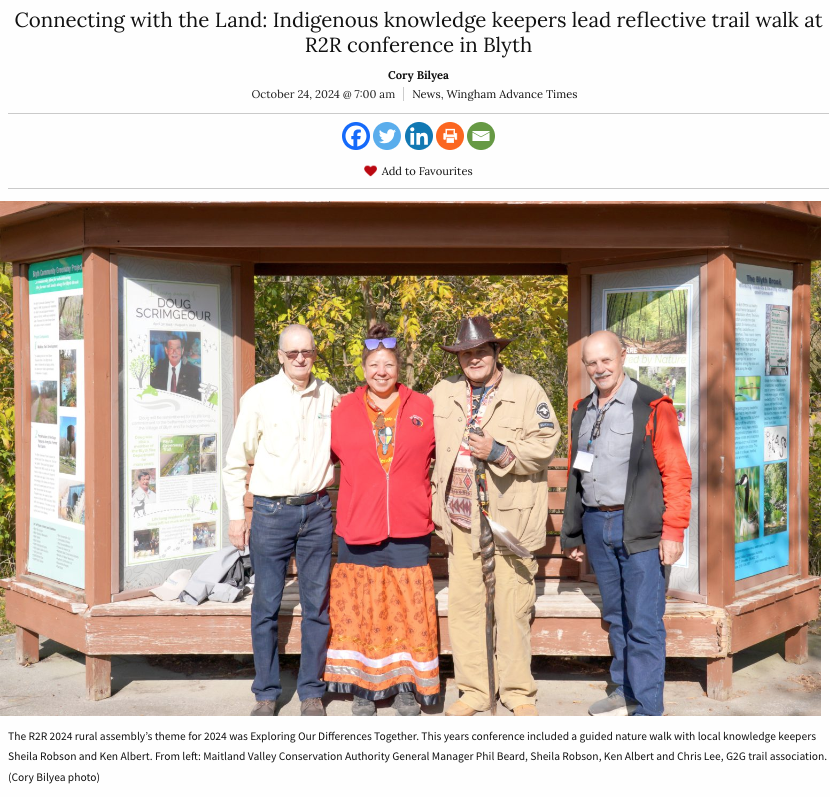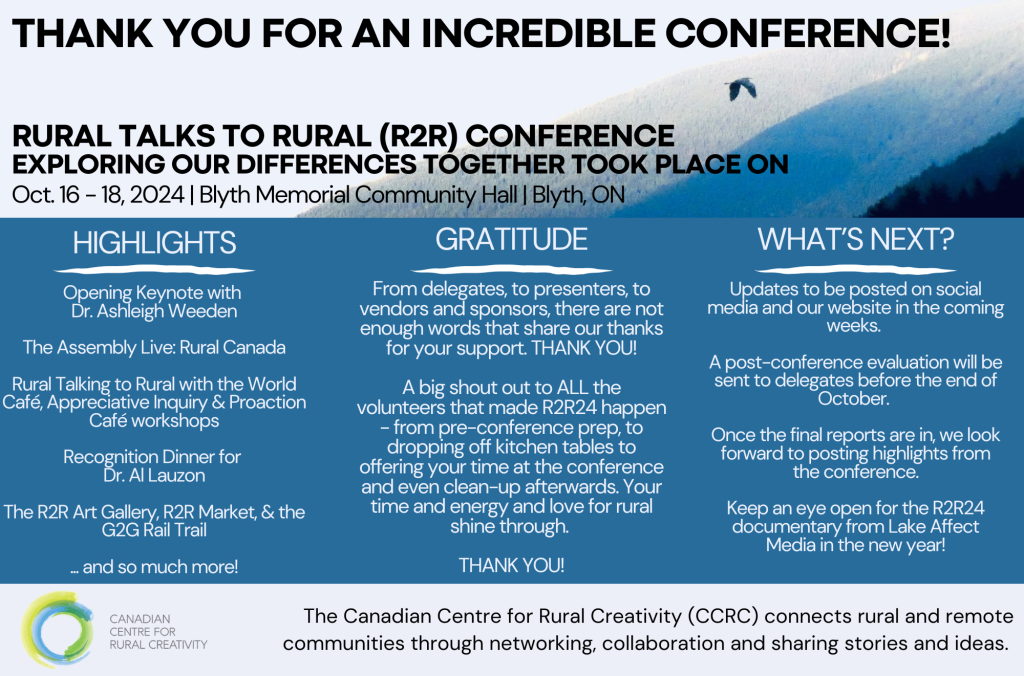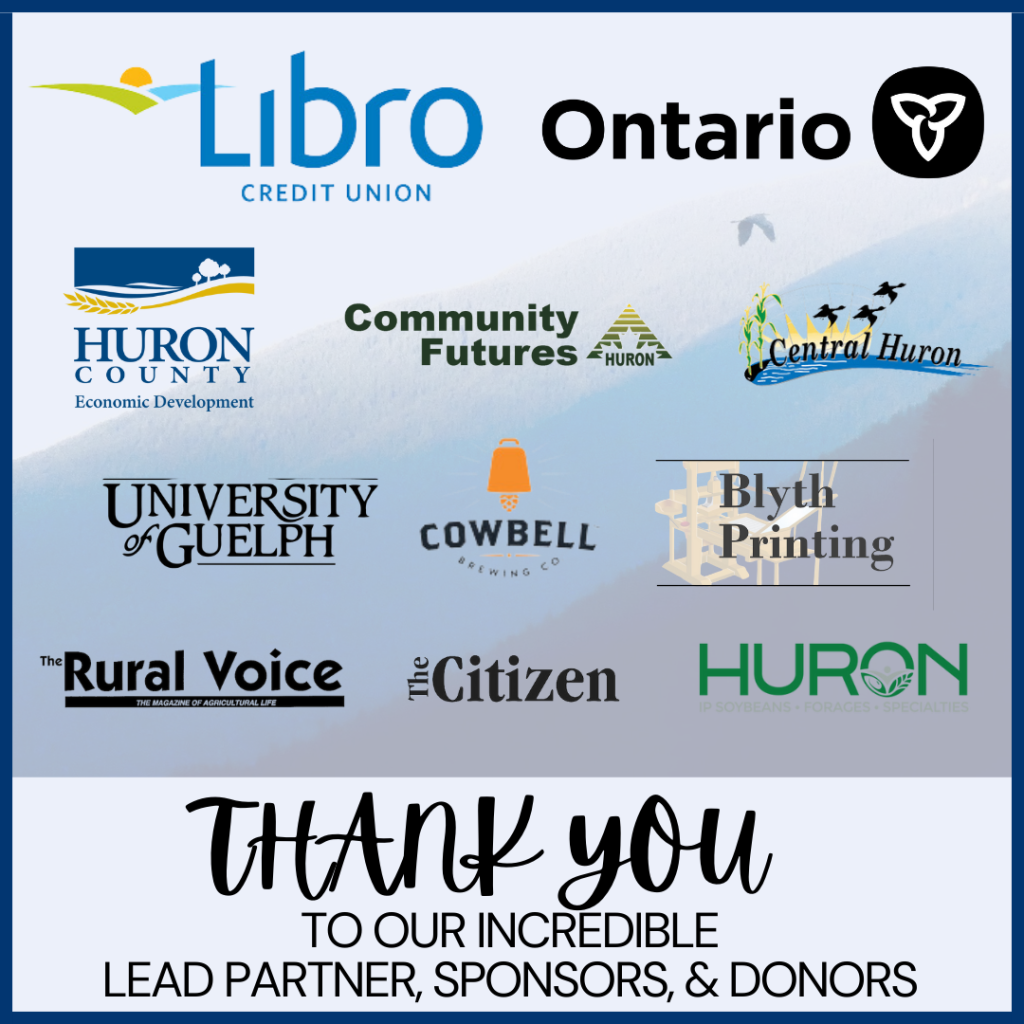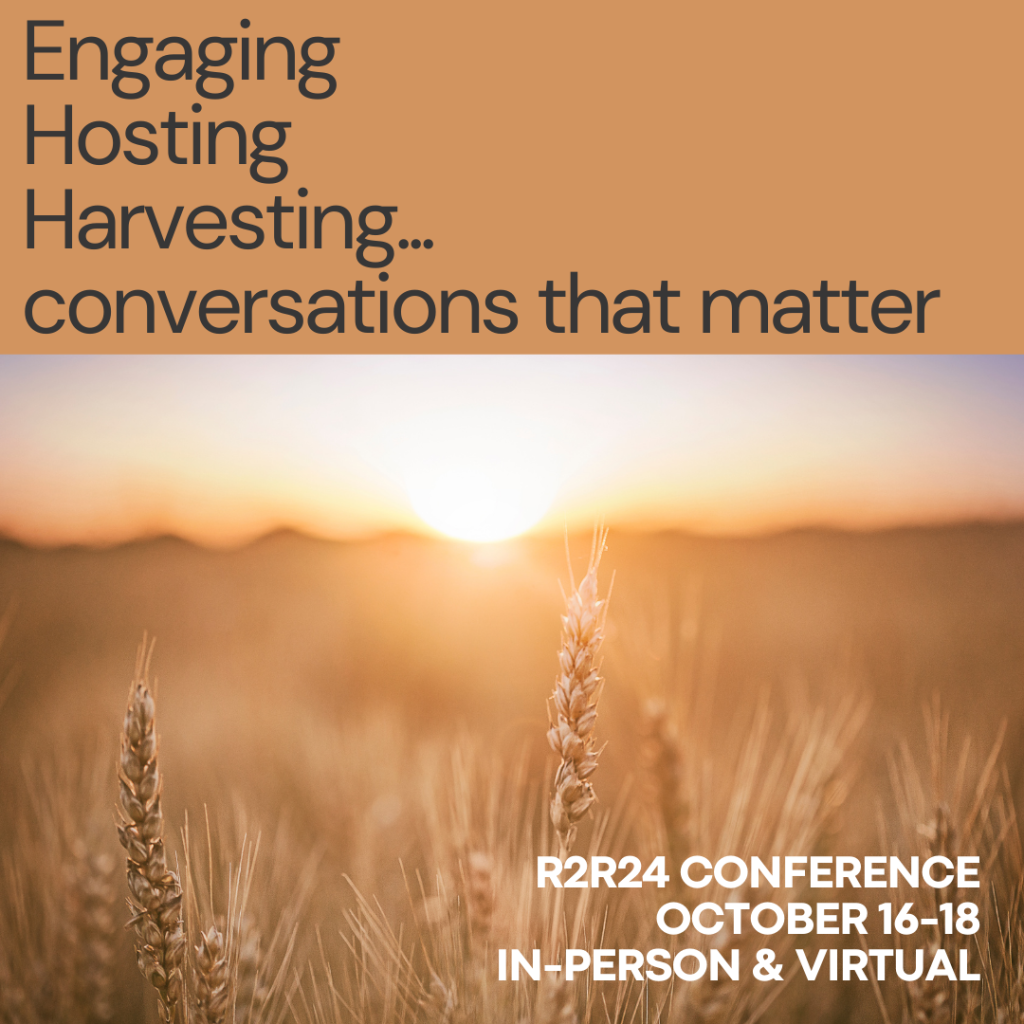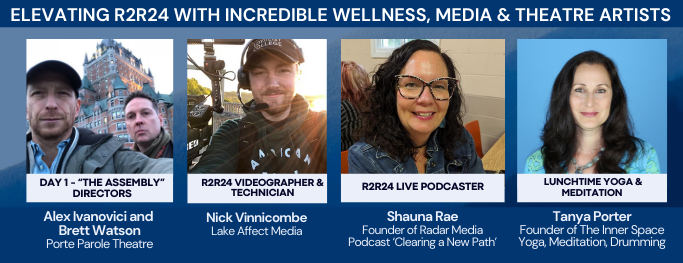Fundraising campaign launched for The Voice of The River
OUR ASK:
We believe in paying our artists and crew – so if you can offer your support – no matter how small or how large – it will assist us mightily. Your support goes toward compensating the incredible skills, talent and work of the artists and crew as well as key production equipment such as a portable stage and mobile sound and lighting.
Your donation, no matter how big or small, will make a difference. You also have the opportunity to sponsor a specific role or need whether it is the tour designer, puppet wrangler, stage manager, transportation or equipment.
How to make a donation or become a sponsor:
You will receive an automatic tax receipt via CanadaHelps.org
> Click here to go to the donation form OR use the QR code below
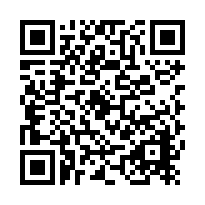
SPONSOR A SPECIFIC POSITION OR EQUIPMENT
To become a sponsor for a specific position or equipment (see list below), please contact Peter Smith directly at:
Email: peter@ruralcreativity.org
Tel: 416-686-1462
You will receive a mailed tax receipt for this option.
Here is a list of what is needed to support this incredible production. Your donation, large or small, will help us get to where we’re going.
> Click here to make a donation
PRE-PRODUCTION NEEDS
| POSITION | DESCRIPTION | COST |
| Creatives/Artists | Actors, musicians, designers bring the stories alive and will be in rehearsals in the spring and summer leading to production in July/August. | $35,000 |
| Tour Manager | This is a critical position. Someone who will liaise with each community for permits, tickets, volunteers, performers from the community etc. Food, port-a-potties, recycling etc. | $5,000 |
| Costumer | Costume builder for the show who would then tour becoming the Assistant Stage Manager. This person also consults with each community to create “tickle trunks” for stories and parades. | $7,500 |
| Puppet Wrangler | This artist will create and oversee the props/banners for te show. They attend workshops and do follow up to ensure all puppets are finished. They also work to refurbish existing puppets and is a part of the tour team. | $5,000 |
| Mask Maker | Mask creator and advisor on costume, props and design. | $3,500 |
| Designer | Oversees all aspects of the production design. | $5,000 |
TOUR NEEDS
| POSITION | DESCRIPTION | COST |
| Stage Manager | Works to ensure smooth running of the production during performances. Works closely with the tech team in rehearsals, on tour. | $7,000 |
| Assistant Stage Manager | This person will help with the running of the show, actor wrangling, wardrobe, prop set-up and maintenance. | $5,000 |
| Production Manager/Tech Director | Ensures set up/tear down of all tech equipment. Responsible for safety. | $6,000 |
| Set, Light and Sound Technician | Crew member who responsible for set up lights and sound equipment and operations. | $5,000 |
| Driver | Drives the company truck from location to location. Ensures load ins and load outs. | $4,000 |
EQUIPMENT NEEDS
| EQUIPMENT | DESCRIPTION | COST |
| Portable Stage | A 20 ft wide and 16 ft deep, 18 inches high with 3 entrance/exit step units for stage right, left, and upstage. It will be made with all weather plywood sheets and aluminum and steel rigging. Easy to put up and to tear down. There will also be a colourful painted stage cloth attached to the stage on poles upstage. At the end of the run the stage will be gifted to Grandview Theatre in order for them to use it as they continue touring up and down the River for years to come. A good investment all around! | $10,000 |
| Mobile sound/lighting | We are using LED lighting with 10 instruments in total. They will be rigged on temporary poles/trees. The lights can change colour and change focus. We will be renting a lighting board for the run of the show. The sound equipment includes speakers, body mics, cable, a mixer and sound board that we will rent for the run. | $5,000 |
THANK YOU FOR YOUR SUPPORT!

